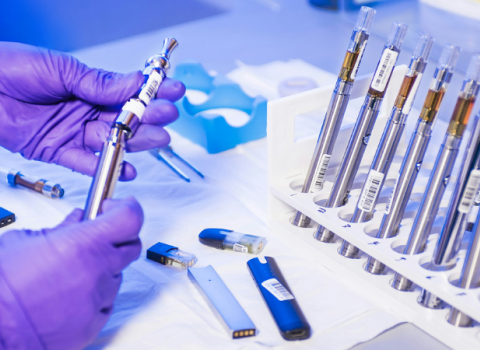Opening Europe up to gene edited crops would be good for start-ups, but clumsy deregulation could cost Europe dear

The European Commission’s decision to revisit the regulation of gene edited crops has the potential to thaw out a sector that has been frozen for the past four years. If it results in deregulation, as seems to be the intention, existing start-ups with gene edited crops would be free to run trials at home, rather than abroad, and could look forward to a home market for their products. And potential gene editing start-ups would at last get a favourable hearing from investors.
“It is a very difficult climate now in the EU, to start a company in the gene editing field,” said Ferdinand Los, chief scientific officer and co-founder of Hudson River Biotech (HRB), a crop gene editing company from the Netherlands. “You have to ask an investor to put money into a company that cannot sell its products in the market where it is located, and it just makes more sense if you invest in the US.”
The risk in this situation is that a lot of people have invested in the US, where gene editing is not subject to special regulation, and these companies have come a long way in preparing gene edited crops for commercial release. “As soon as the EU opens up the market, they can just jump in immediately with a product,” said Chidananda Kanchiswamy, founder and CEO of Irish gene editing start-up Plantedit.
Now that a change in regulation is on the table, Los expects entrepreneurs and investors will be looking out for hints of a positive outcome. “As an entrepreneur, if I didn’t already have a company in this field, that for me would be the sign to jump in, to make sure I was at least first in that new pack. If you wait for regulations to change and then start developing, then you are very far behind.”
This means that the Commission has to be very careful about how it manages the discussion and subsequent decision about deregulation. “The best outcome is if they are as fast as possible with their decision,” Los said. “Best for European consumers, who will get access to cutting edge developments as soon as possible, and best for companies, minimising the development gap with US companies, for example.”
Transgenes
Europe’s problem dates back to a 2018 ruling by the Court of Justice of the EU that gene editing techniques, such as CRISPR-Cas9, should be covered by existing rules, designed to strictly control genetic modification methods that move genes between different species. The result was effectively a ban on growing gene edited crops in Europe and putting products derived from them onto the market.
HRB was already established at this point, having set up in 2015 as a gene editing technology provider for plant breeders, large and small, looking to develop advantageous traits in different crop varieties. Even though it was not putting gene edited crops on the market itself, the Court decision was a serious shock.
“We were considering closing the Dutch operation, moving the company to the US and continuing there,” Los said. But then the number of enquiries and customers started to rise. “A lot of companies had been holding off, because of the uncertainty. Now they had certainty, they knew on which fronts they could move forward with projects, and that helped us grow.”
As a result, HRB today has a healthy business, even if many of its customers are in the US and other parts of the world. “The innovation is happening here, but the fruits of the innovation are enjoyed by people elsewhere,” said Los.
While this is entirely sustainable, HRB may have to look abroad if it wants to expand in particular directions. “If we move into the area of field trials, we will likely need a subsidiary in the US, for example, to do trials over there.” Any change in the EU regulation will come too late to help on that front. “That will have to become a reality over the next one to two years.”
Even so, a change in Europe would be very welcome. “If the regulation changes, it would open up an additional market for us here in the EU, and for our customers. Products that they are developing with us now, for other markets, could then be sold within the EU.” Last year the company raised €5 million in funding to further scale up its gene editing business, with plans to increase staffing from 25 to 40 by mid-2022.
Waiting for spring
The 2018 decision was harder on Plantedit, which was working at the time on a number of gene edited crops, the most developed being a soya plant able to produce an oil similar to olive oil. The EU’s unexpected ruling stopped the company in its tracks. “We had offers to move to the US, but the expenses were very high compared to the EU, plus we have our roots and our network here,” said Kanchiswamy.
He had already relocated once to start the company, moving from Italy, where he trained in plant biotechnology at the University of Turin and the Foundation Edmund Mach, to Ireland. After passing through the RebelBio accelerator, the company established itself in Cork, where it has links to the Plant Science division within the University College School of Biological Earth and Environmental Science.
Since 2018, Plantedit has changed strategy. On the one hand, it has explored licensing its tools to companies in the US and other territories where gene editing is deregulated. And on the other, it has developed a strain of gene edited microalgae, which can provide growth hormones and other peptides to support meat growing in culture. This escapes the restriction on gene edited organisms in the wild, because they are confined to a bioreactor. And the genome of the food product itself is not modified at all.
With a staff of around four, and a floating population of master’s students, Plantedit is working on a proof of concept for this product before going back to investors for additional funding. Meanwhile, it is still working on food crops, in the hope that a market closer to home will open up.
It has a post-doctoral researcher at University College Cork working on gene edited strawberry plants that will be resistant to a particular fungus, with funding from Horizon Europe and Enterprise Ireland. “We are developing products, and we will most probably go to the UK to market them, while we wait for the EU to change its regulations,” Kanchiswamy said. Deregulation of gene edited crops is on the way in the UK as part of its post-Brexit break with EU law.
Boost for the ecosystem
As well as benefiting Plantedit, Kanchiswamy thinks that deregulation will encourage more start-ups across Europe. “If you change the regulations, there are a lot of opportunities. The EU is heavily dependent on agriculture, and if there is the opportunity to produce something which is better for the environment, investors will be very happy to invest, and the number of start-ups will increase.”
Los agrees there is a lot of room in the market, with plenty of niches overlooked by big agri-food companies. “There won’t suddenly be 20 additional companies selling corn, but there are many more crops, and plant species that we can use as crops, where there are opportunities that the big companies are not touching.”
In the long run, a thriving European start-up ecosystem will also suit the agri-food giants. “Start-ups and small companies are much more agile than the really large companies and can be very effective at quickly making new technologies market-ready,” Los said. “The big companies can invest in such new companies, have a front row seat during the developments, and then step in to license or purchase technologies, or purchase entire companies.”
Not everyone is so optimistic, however. For Spencer Maughan, managing partner at agri-food specialist 2Finistere Ventures, changing the regulation in Europe will not be enough to unleash a start-up boom. That will only happen once a gene edited food is acceptable to the public. “My feeling is that there is a massive activation energy to get something proven and derisked, from a commercial value point of view, which is one or two steps beyond regulatory. And you need that. That’s the pull through event that then causes a lot more investment in start-ups, because people realise they can make money.”
That event will most likely happen in the US, where deregulation is unified and covers a vast extent of arable land. Deregulating gene editing at the EU level will not, on its own, create the same conditions, Maughan said. “You can have EU directives, but there is still state regulation that gets in the way, and ultimately you will have to fight battle after battle. Then you have the history that mucking around with food in Europe is tougher. So, with those two things combined, I’d say that until it takes off in the US, it’s hard to have the pull through effect.”
Elsewhere in the Ecosystem...
- A pan-European online hackathon will take place in June to develop ways to help Ukrainian citizens access services, and to support Ukraine’s recovery. The goal is to find novel ways to provide assistance to refugees, displaced and non-displaced persons, and to provide everyday services to companies. The Fintech Challenge for Ukraine is organised by the European Digital Finance Association, in cooperation with the Ukrainian Association of Fintech and Innovative Companies, with funding from the European Commission. Hackathon winners will be announced at the end of June.
- Solithor, a newly created spin-off from Belgian microelectronics research centre Imec, has raised €10 million in seed investment to develop solid state battery cells for transport applications. The technology both boosts the performance of solid state batteries, and addresses manufacturing hurdles with an assembly process compatible with classical Li-ion battery assembly lines.
- The Commission has strengthened support for women in start-ups under the European Innovation Ecosystems work programme of Horizon Europe. Following a successful pilot in 2021, the Women TechEU programme will be run again in 2022, offering coaching and mentoring to women founders, plus targeted funding to help their businesses develop. The budget of €10 million will support 130 companies, with a call for proposals due on 21 June. Meanwhile €2 million will go towards increasing women's representation in innovation and investment ecosystems, notably by supporting angel investors and their syndicates in countries where these activities are weak.





 A unique international forum for public research organisations and companies to connect their external engagement with strategic interests around their R&D system.
A unique international forum for public research organisations and companies to connect their external engagement with strategic interests around their R&D system.